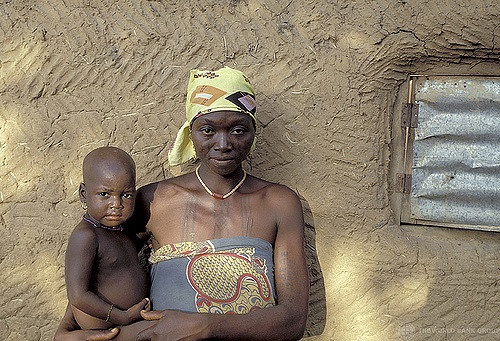
Ghana: “Traditional” Ways of Resolving Child Sexual Abuse Issues
[caption id="attachment_2066" align="alignleft" width="350"] World Bank Photo Collection (CC BY-NC-ND 2.0)[/caption]
World Bank Photo Collection (CC BY-NC-ND 2.0)[/caption]
 World Bank Photo Collection (CC BY-NC-ND 2.0)[/caption]
World Bank Photo Collection (CC BY-NC-ND 2.0)[/caption]
Child sexual abuse in the family, school and among peers is prevalent in Ghana, yet vastly underreported. The incidence of child sexual abuse is difficult to determine in many cultures, tribal and traditional setups by chiefs and elders. For what is considered child abuse in a particular society and ethnic/ tribal group may not necessarily be in other cultural and ethnic environments. Furthermore, the diversity in cultural values, coupled with the pride of one’s ethnic identity vis-à-vis their diverse interpretations shut children’s mouth to the advantage of culprits.
Sexual abuse of a child traditionally may not be reported because it is an abomination to the society, a disgrace to the family, a sacrilege to the sacredness of womanhood and the deities of the land. For the reason that virginity is sacred, thus culturally, a girl is only allowed to have her hymen broken in the adult age, that is to say, after puberty rites and rituals have been performed on and by the child. Thus, any sexual relation prior to the said rite and ritual is considered an abuse on the sacred laws of the township, tribe and tradition. Perpetrators are expected to be punished or their deeds become a curse on the township. However, if the abused girl is found pregnant, she may be banished from the village if she is not initiated while the male partner will be charged to pacify the gods of the land. Depending upon the culture, the charge could range from few bottles of alcoholic beverages to sheep or goat and a quantity of cowries or cola nuts. Due to the severity of the punishment and the shame involve, cases are either handled clandestinely or not brought out at all for fear of the negative consequences or outcome especially if perpetrators are relatives or close friends.
Traditional rulers’ responses are deeply inadequate, characterized by cultural laws and traditional beliefs which scare victims to suffer in silence for fear of curses and misfortunes. When the elders gather, in an attempt to bring the offenders to justice unfortunately, the wellbeing of the victim, does not form party of the multicultural and the multiethnic approaches of solving cases rather, the interest of the purported elders and chiefs is generally focused on the material charges of which they are beneficiaries and the pacification of the gods and goddesses. No effort is made to protect the identity of the victim since trial is usually public and open to the entire society’s hearing. Besides, the stigma and shame that the victim may be experiencing is never considered in the process. Additionally, the emotional and psychological and physical consequences of the abuse on the victim as a result of the sexual abuse are least considered as issues. Nevertheless, whenever they are considered by the elders, a token of gift, usually in the form of money or a number of eggs maybe given to the victim to pacify her soul. What happens to the wounds, brokenness and betrayal of the child? The power difference involved in the abuse situation? Traditional elders, chiefs and arbitrators have no idea, sad though but a reality today.
Sr. Rejoice Hoedoafia SOL

